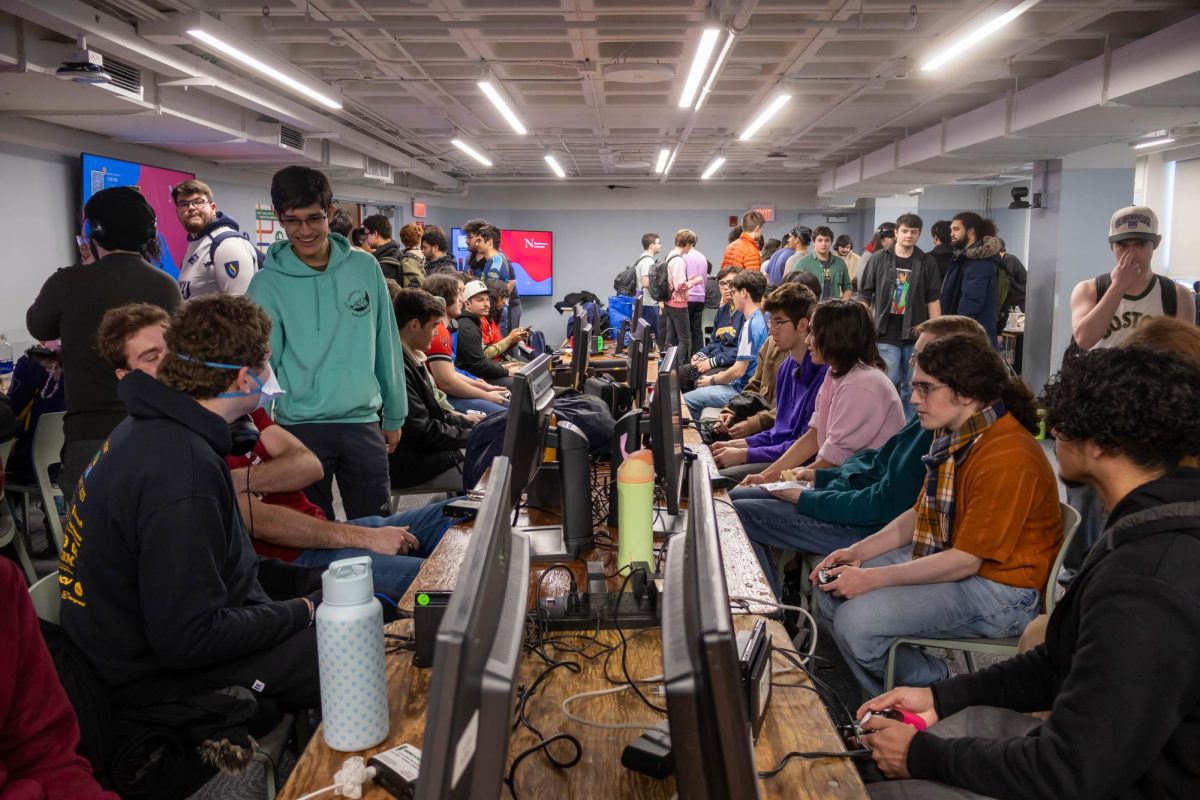By Kate Augusto
While much of the country thinks of Darfur when addressing refugee issues in Africa, some students say another conflict deserving of attention is in Uganda.
The turmoil in Uganda was unheard of by the average college student two years ago, said Alyson Brennan, a middler international affairs major. But an increase in student activism sparked by a documentary on the subject has not only spread awareness, but also spurred political change.
FORGE Advocacy, which focuses on refugee rights, is the parent group of the Uganda activist groups at Northeastern, Brennan said.
Brennan and Olga Feingold, a senior math major, started a subgroup of FORGE last fall that focuses on the conflict in Uganda. The group, called Uganda-Conflict Action Network (Uganda-CAN), is registered with the national organization, which is in the process of changing its name to Resolve Uganda. Uganda-CAN also works with the national organization Invisible Children, which created the documentary by the same name.
“We really are making a difference,” Brennan said. “At times we struggle to see it, but by getting our government aware of the problem, our work goes a long way.”
The Lord’s Resistance Army (LRA) of Northern Uganda arose in 1986 to resist President Yoweri Museveni’s oppression, but then turned on civilians and abducted more than 30,000 northern children, brainwashing them to join the army, Brennan said. The LRA’s treatment of its own civilians, the government’s treatment of Northerners and the fighting between the North and South have left Uganda full of strife.
According to the website for Resolve Uganda, 1.7 million people have been displaced as a result of the conflict and the war has raged for more than 21 years, making it the longest conflict in Africa.
Members of Uganda-CAN participated in Uganda Lobby Days, an event last fall where participants attempted to get representatives and senators to lobby the U.S. government to publicly support peace talks between the north and the south.
Uganda Lobby Days was successful, Brennan said, and the State Department announced public support for the peace negotiations after several senators signed letters requesting the action.
Alison Jones, director of advocacy for Resolve Uganda, said the purpose of their organization is to mobilize citizens around the country to give them opportunities to make strides in bettering Northern Uganda.
“We want everyone to get involved and bring their family and friends. Lobby Days was a big encouragement with 700 people, largely students, joining in,” Jones said. “The issued statement supporting talks is a great step, but we still have a long way to go and the peace talks just started up again this week.”
In addition to Uganda Lobby Days, Brennan said their Uganda-CAN group aired the “Invisible Children” documentary several times at Northeastern. The film highlights the plight of Northern Uganda and Ugandan children who live in fear of kidnapping and walk to the city every night to avoid being stolen in their sleep.
“I take pride in the fact that each time we show it we get new people and more find out about it,” Brennan said. “It’s the fact that we’re helping to change American culture by showing them that there’s a bigger world out there and bad things are happening.”
Hannah Robertson-Forrest, a middler international affairs and history major, became involved with Uganda-CAN after seeing “Invisible Children.”
“After personally learning about what’s going on [in Uganda], it made it impossible for me not to get involved,” she said.
Rob Uvanovic, a middler international affairs major, said he got involved with Uganda-CAN after going on a Global PACT Dialogue, which pairs college students together to better a community they are visiting.
“It’s hard to know what’s going on and not want to do something,” Uvanovic said. “Being involved also keeps me up to date on what’s going on in the world, which I think is important; and this is not something that’s reported on often.”
In addition to spreading the word, Uganda-CAN at Northeastern sponsors a school in Northern Uganda through the national Invisible Children program Schools for Schools.
“With the war, the infrastructure is limited [in Northern Uganda] so they’re making sure a handful of schools are the best they can be with water, electricity, new teachers and books,” Brennan said.
Next year, more work will be done to raise money with fundraisers like a soccer tournament and a dance-a-thon.
“Right now, a lot of money and energy is being focused on education and rehabilitation for kids. [The people in Northern Uganda] want peace over justice. They would rather bring people back into the communities and forgive them than continue fighting,” Brennan said.
At the national level, Resolve Uganda and Invisible Children share the same goal, Brennan said, but Resolve Uganda is more politically geared while Invisible Children aims at expanding American sentiment to caring about issues like the Uganda conflict.
“It’s important for people to see that there’s a whole world outside of what’s going on with Paris Hilton,” Brennan said.









